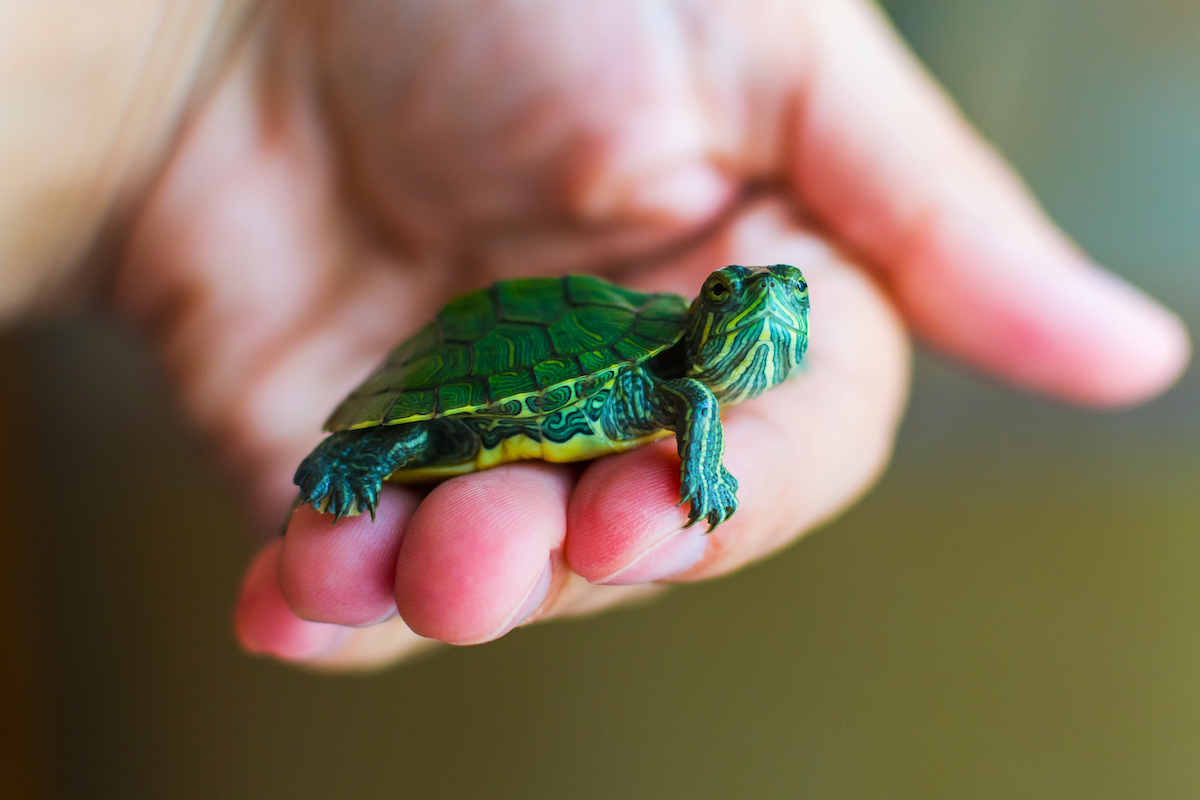Pet turtles can be safe if proper care and hygiene practices are followed. However, there are certain considerations to keep in mind.
Pet turtles can bring joy and companionship to their owners. These fascinating creatures have unique abilities and can be a wonderful addition to a household. Like any pet, it is important to understand that owning a turtle requires responsibility and a commitment to their care.
While turtles may seem low-maintenance, they still require a suitable habitat, a nutritious diet, and regular veterinary care. It is also crucial to provide a clean and safe environment for them to thrive in. Additionally, turtles can carry bacteria like Salmonella, so it’s important to practice proper hygiene when handling them. Ultimately, with the right knowledge and care, pet turtles can be enjoyed safely and responsibly.

Credit: pethelpful.com
Overview Of Pet Turtles
Pet turtles are a popular choice for reptile enthusiasts. They come in various types, each with its own unique characteristics and care requirements. Understanding the different types of pet turtles can help you make an informed decision when choosing one as a pet.
Different Types Of Pet Turtles
1. Box turtles: Known for their colorful shells and ease of care, box turtles are a common choice for turtle keepers.
2. Red-eared sliders: These turtles feature distinctive red stripes on the sides of their heads and require a well-maintained aquatic habitat.
3. Painted turtles: With their vibrant colors and small size, painted turtles are popular among turtle enthusiasts.
Common Risks Associated With Pet Turtles
1. Salmonella infection: Turtles can carry Salmonella bacteria, which can be transmitted to humans through handling or inadequate hygiene.
2. Dietary issues: Improper diet can lead to various health problems in pet turtles, such as vitamin deficiencies and obesity.
3. Inadequate housing: Turtles require a suitable enclosure with proper lighting, temperature, and space to ensure their well-being.
4. Physical injuries: Care must be taken to prevent injuries from falls, sharp objects, or interactions with other pets.

Credit: animalcarecentersmyrna.com
Health And Safety Considerations
When it comes to owning a pet turtle, it’s important to understand the proper handling and care required to ensure their health and safety.
Potential health issues:
- Turtles can carry salmonella, a bacteria that can cause illness in humans. Therefore, it’s crucial to regularly clean and disinfect their habitats and wash your hands thoroughly after handling them.
- Turtles are prone to respiratory infections and shell problems. It’s essential to provide them with a clean and suitable habitat, proper diet, and regular check-ups with a reptile veterinarian to prevent and detect any health issues early on.
- Overfeeding can lead to obesity and other associated health problems in turtles. Following a balanced diet and feeding them in appropriate portions is essential.
Safety measures for children and other pets:
- Supervise interactions between children and turtles to ensure they handle them gently and avoid any potential injuries to both parties.
- Keep turtles and other pets separated to avoid any aggressive behavior or harm.
- Avoid leaving turtles unattended in open spaces, as they can be vulnerable to accidents or injuries.
Legal And Ethical Aspects Of Owning Pet Turtles
When considering owning a pet turtle, it is important to be aware of the laws and regulations that govern their ownership. In many countries, there are specific requirements in place to ensure the welfare of turtles and protect their natural habitats. These regulations typically include guidelines on turtle size, housing conditions, and permits. It is crucial to familiarize yourself with these laws to avoid any legal complications.
Alongside legal considerations, there are also ethical concerns associated with owning pet turtles. One such concern is the potential impact on wild turtle populations. The capture and trade of turtles from the wild can have detrimental effects, such as disrupting ecosystems and depleting populations. Ethical turtle ownership involves sourcing turtles from reputable breeders or adopting from animal shelters, thereby minimizing harm to wild populations.
| Laws and regulations regarding pet turtles | Ethical concerns and potential impact on wild turtle populations |
|---|---|
| • Specific requirements on turtle size | • Disruption of ecosystems |
| • Guidelines on housing conditions | • Depletion of wild turtle populations |
| • Permit regulations | • Importance of sourcing turtles from reputable breeders or shelters |

Credit: www.arnoldpalmerhospital.com
Conclusion
Keeping pet turtles can be a safe and rewarding experience for both children and adults. By providing them with an appropriate habitat, a balanced diet, and regular veterinary check-ups, you can ensure their health and well-being. Additionally, teaching proper handling techniques and ensuring proper hygiene can further enhance the safety of pet turtles.
Remember, responsible ownership is key to keeping these fascinating creatures safe and thriving.






Leave a Reply